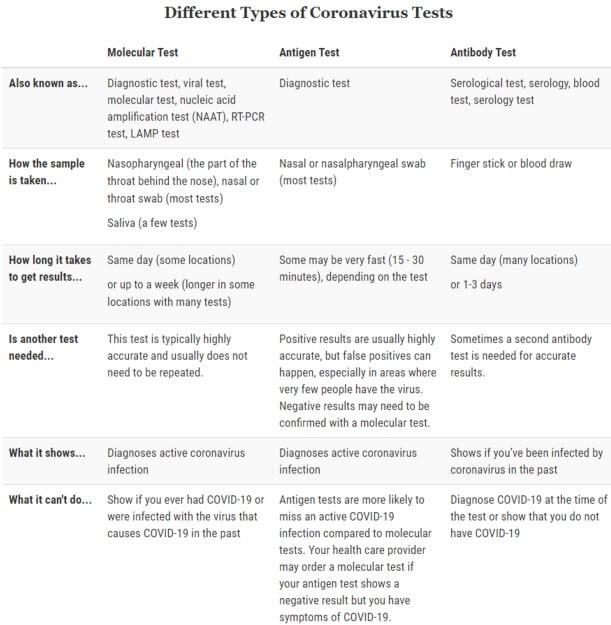Medical Laboratory Technicians And THe Pent Up, Growing demand for this skillset.
You’ve probably heard a lot about the coronavirus disease SARS-CoV-2 (aka. COVID-19). If you haven’t, please let us know because we want to join you in that part of the planet Earth that has not been affected by this terrible virus.
There are currently two types of tests commonly used to fight the COVID-19 pandemic. Source fda.gov
The First Type of Test: A diagnostic test can show if you have an active coronavirus infection and should take steps to quarantine or isolate
yourself from others. Currently there are two types of diagnostic tests–molecular tests, such as RT-PCR tests, that detect the virus’s genetic material, and antigen tests that detect specific proteins from the virus.
The Second Type of Test: An antibody test looks for antibodies that are made by your immune system in response to a threat, such as a specific virus. Antibodies can help fight infections. Antibodies can take several days or weeks to develop after you have an infection and may stay in your blood for several weeks or more after recovery. Because of this, antibody tests should not be used to diagnose COVID-19. At this time researchers do not know if the presence of antibodies means that you are immune to COVID-19 in the future.
Basically, you can categorize these into 3 tests – Molecular, Antigen, and Antibody. The most commonly used testing methods at this time are the first 2; the diagnostic testing methods RT-PCR and Antigen tests.

"early virus detection allow individuals to isolate and prevent the spread of COvid-19"
Laboratories and Lab staff are working overtime to make sure these samples are read quickly and accurately. Many are working long hours and are about as essential as any essential worker can get. We are thankful they are available to help our community in such a meaningful and direct way. Needless to say, the MLT profession is in high demand as we fight through this pandemic together.
Our society has been reminded recently of how important skilled laboratory team members, such as Medical Laboratory Technicians (MLT) are, but this has been a growing trend despite the pandemic. Doctor’s heavily rely on lab results to help determine appropriate care. This pandemic has simply put demand into overdrive.
Medical Laboratory Technicians (MLT’s) are at the front lines from when the specimen samples enter the hospital or private laboratory thru to when samples are analyzed and results processed and distributed to the providers. Even at research centers, where they are busy going thru clinical trials, MLTs serve a key role. Even your local physician office labs, MLTs have important work to do.
At the entry-level, the MLT will be able to perform routine clinical laboratory tests done in hematology, chemistry, immunohematology, microbiology, immunology, and coagulation. These responsibilities include, but not limited to:
- Collection and interpretation of data
- Decisions concerning sample collection and handling
- Sample testing
- Maintenance of accurate records and reporting of data
- Knowledge of critical values
- Communicate via consultative interaction with other members of the healthcare team
- Daily instrument maintenance and quality control
The analysis required from MLTs can vary from point of care testing, blood draws, to more complex testing which involves all major areas of the clinical laboratory. Pre-analytical, analytical and post-analytical processes serve as diverse skill sets that are taught by a program such as Regan Career Institute’s Medical Laboratory Technician program.
All MLTs are required to be licensed by the state of California to work as MLTs and RCI’s MLT program will help students navigate this path. Many medical professionals, such as Phlebotomist, can look towards becoming an MLT to be an appropriate and worthwhile upward path in their career as laboratory professionals. Even soon to be Clinical Laboratory Scientist (CLS) first start their careers as MLT professionals.

